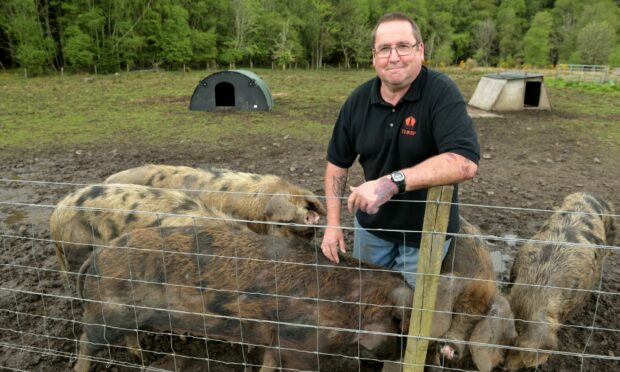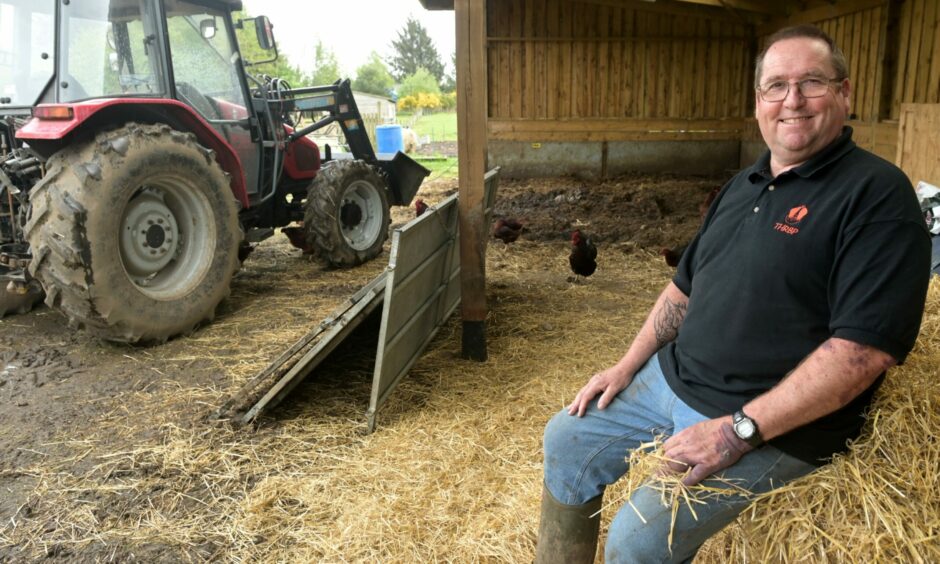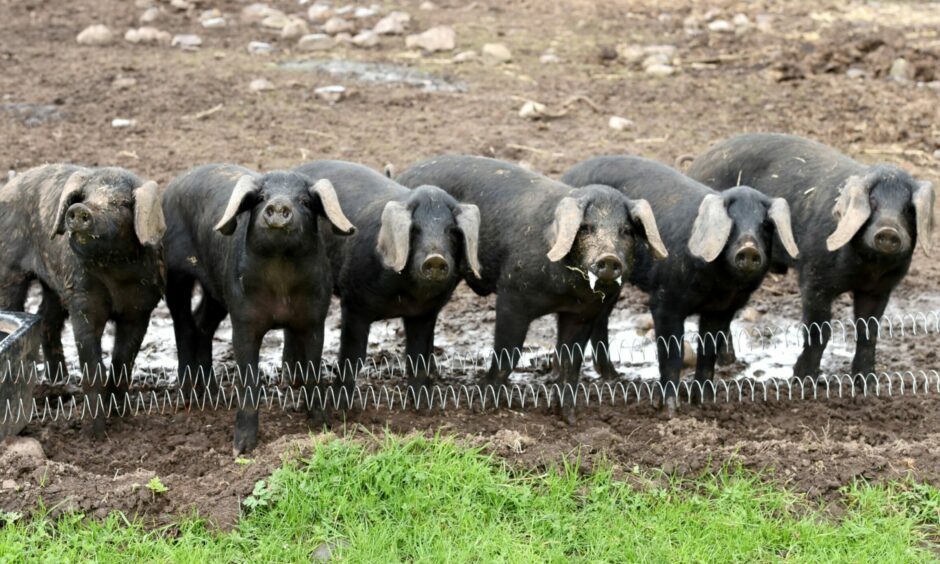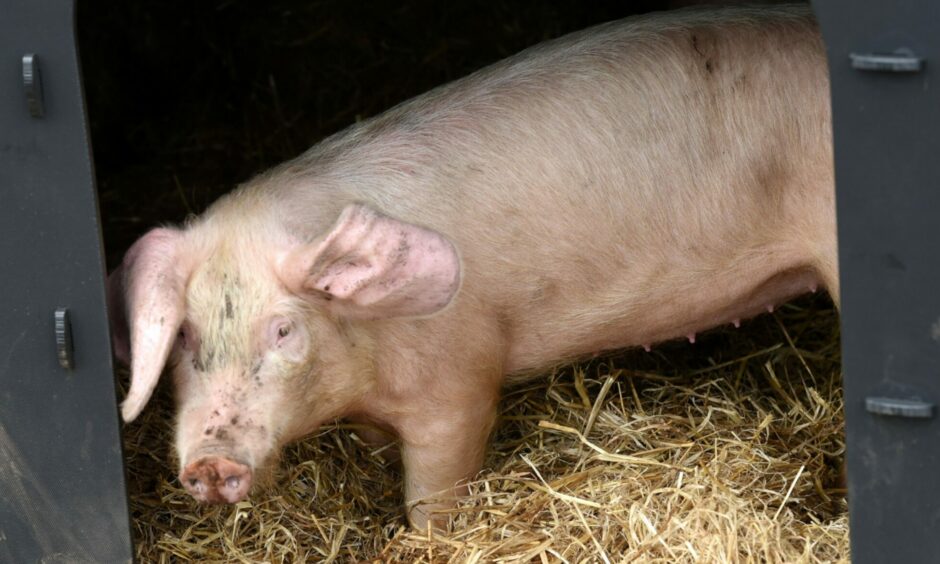A Highland crofter is passionate about preserving rare breed pigs and sharing his knowledge about pig-keeping with others.
Bob Pratley runs Tullich Highland Rare Breed Pigs at Tullich Muir near Invergordon, alongside working as a train driver instructor in Inverness.
Together with his wife Carol, he moved to the Highlands 14 years ago from Cambridgeshire with no intention of getting involved in farming or crofting.
“My wife happened to come across this house and fell in love with it so we ended up here,” said Bob.
The house came with a 15-acre croft, which was previously used for grazing by crofters, and within a week of living there, Bob says he felt the urge to get involved with working the land.
“We tried sheep to start with but I’m not a sheep person; I couldn’t get onto the same wavelength as sheep,” said Bob.
“We were then offered some pigs to clear some brushland and immediately I just got on so well with them.”
Rare breed pigs face extinction
After initially starting with that one pig, Mr Pratley now has 30 pigs with a focus on three main breeds – the Oxford Sandy and Black, British Lop, and Large Black.
All three breeds are on the Rare Breeds Survival Trust’s watch list, meaning they are considered rare and at risk of extinction.
“Primarily our focus is to increase the breeds but because they are so rare the breed standards have to be upheld, so if we have some that don’t conform to that breed standard we sell them to other crofters to rear for meat,” said Bob.
“For those that are good, we will register them and hopefully they will go on to people who want to breed with them.”
Passionate about increasing awareness of, and preserving these rare breeds, Bob said: “More and more people are increasingly aware of the rare breeds and they are increasingly aware of the meat itself, and that they can use these pigs to work the ground.
“They can use them to turn over ground that you cannot turn over with a machine. And at the end of the day you do end up with a very different and delicious pork product.”
Bob and Carol send some of the pigs, which don’t conform to breed standards, to John M Munro in Dingwall for slaughter and they are then butchered by a local butcher, with some of the pork sold from the croft gate.
‘Horrendous’ to lose the rare breeds
When asked why he keeps rare breeds, Bob said: “It’s immensely important because some of the breeds are down to a few bloodlines.
“It would be horrendous to lose them [the breeds]. We have sold pigs all around the Highlands and Islands and we have had some go down to the Central Belt.”
Mr Pratley’s passion for pigs has led to him becoming an agent for Kellfri agricultural equipment and Farmplus buildings.
He also plans to hold pig-keeping courses later in the year, but anyone interested in finding out more about the breeds and how to rear them can get in touch for information before formal courses start.
“I thought wouldn’t it be nice if somebody who wants to keep pigs can come along and see everything,” said Bob.
“We are not a closed shop here. Whilst I’m not an expert and I am learning every day, I am keen to pass on information and things I have learned.”
Anyone interested in finding out more about the pigs Bob rears can find out more information online at tullich-highland.co.uk.




Conversation